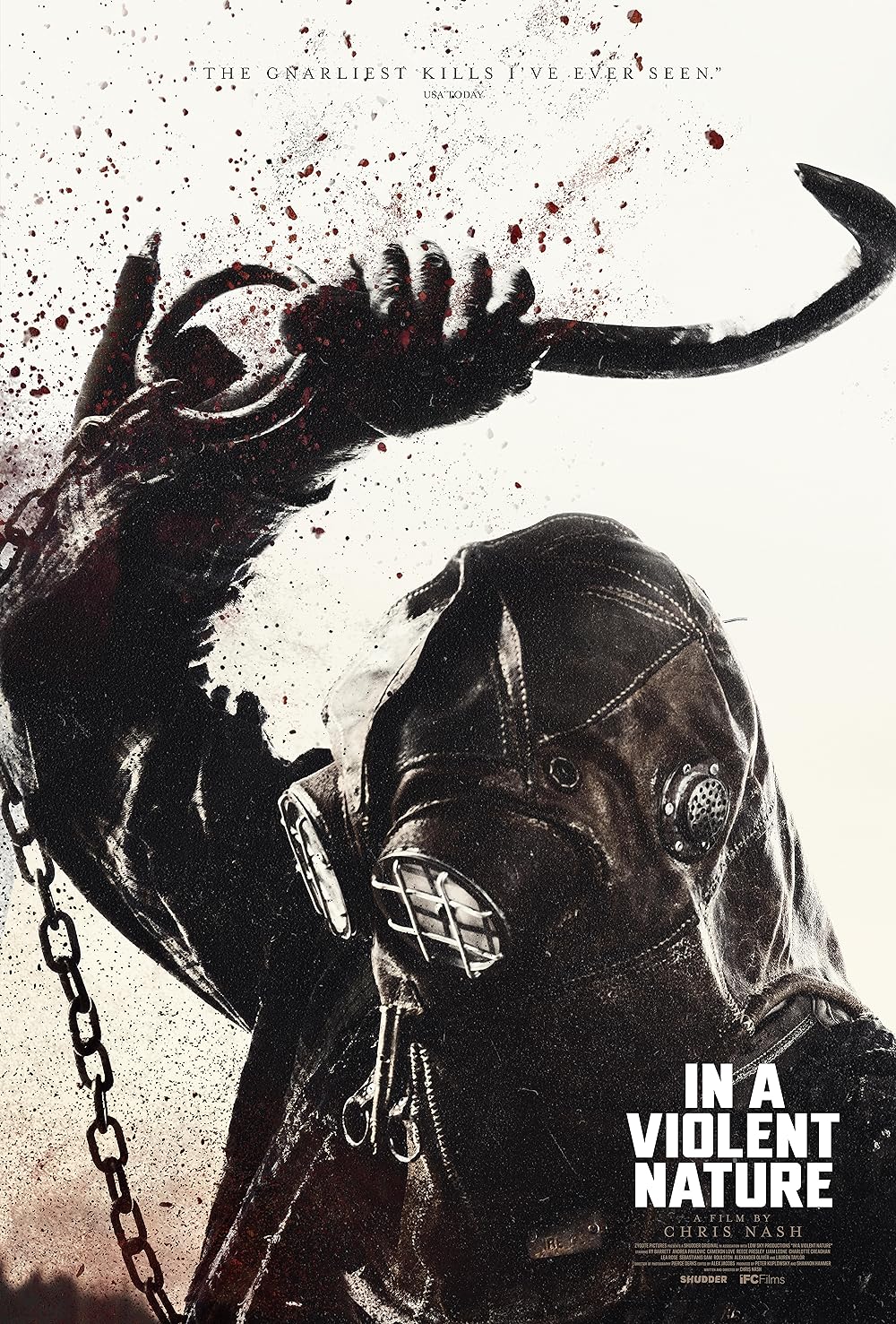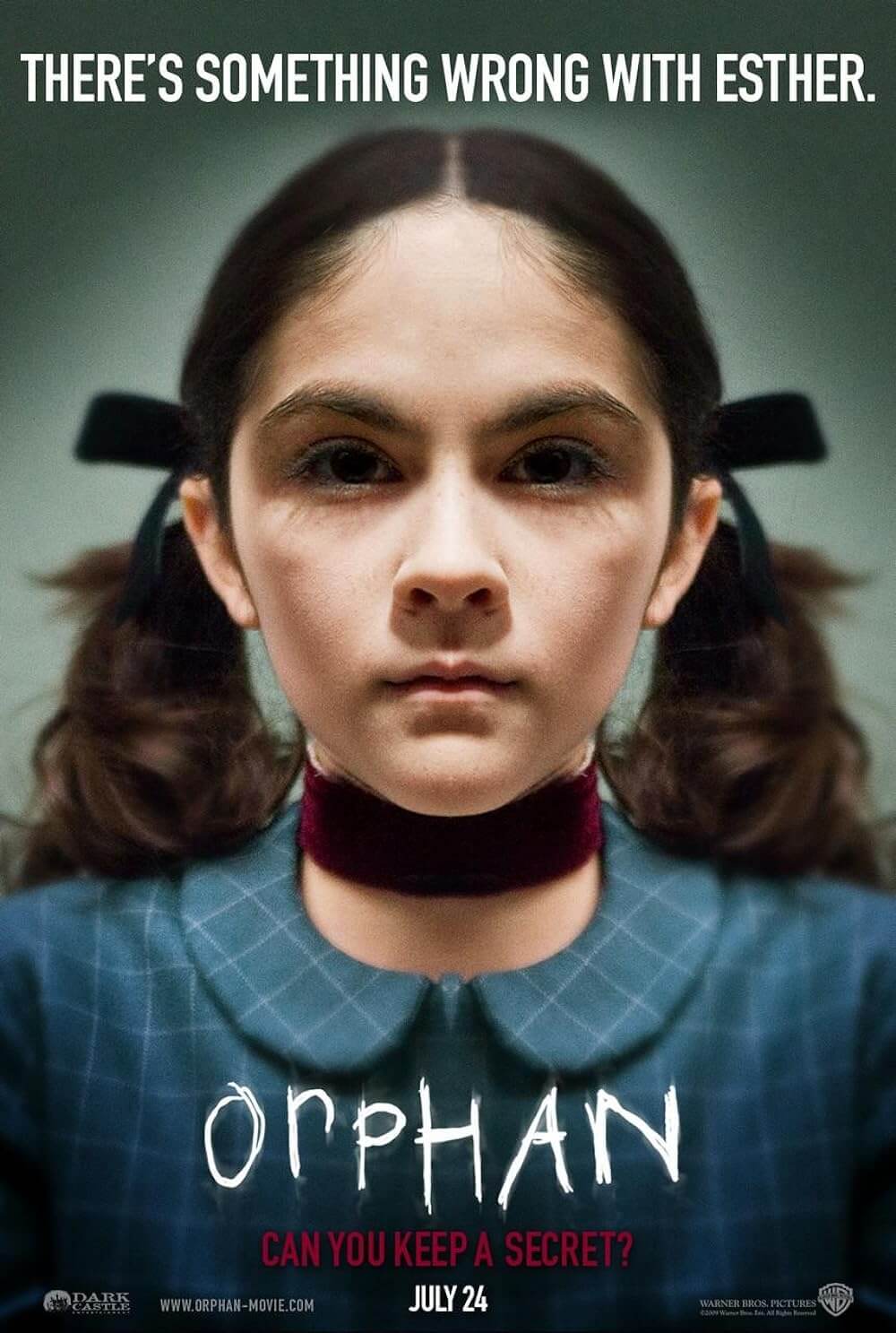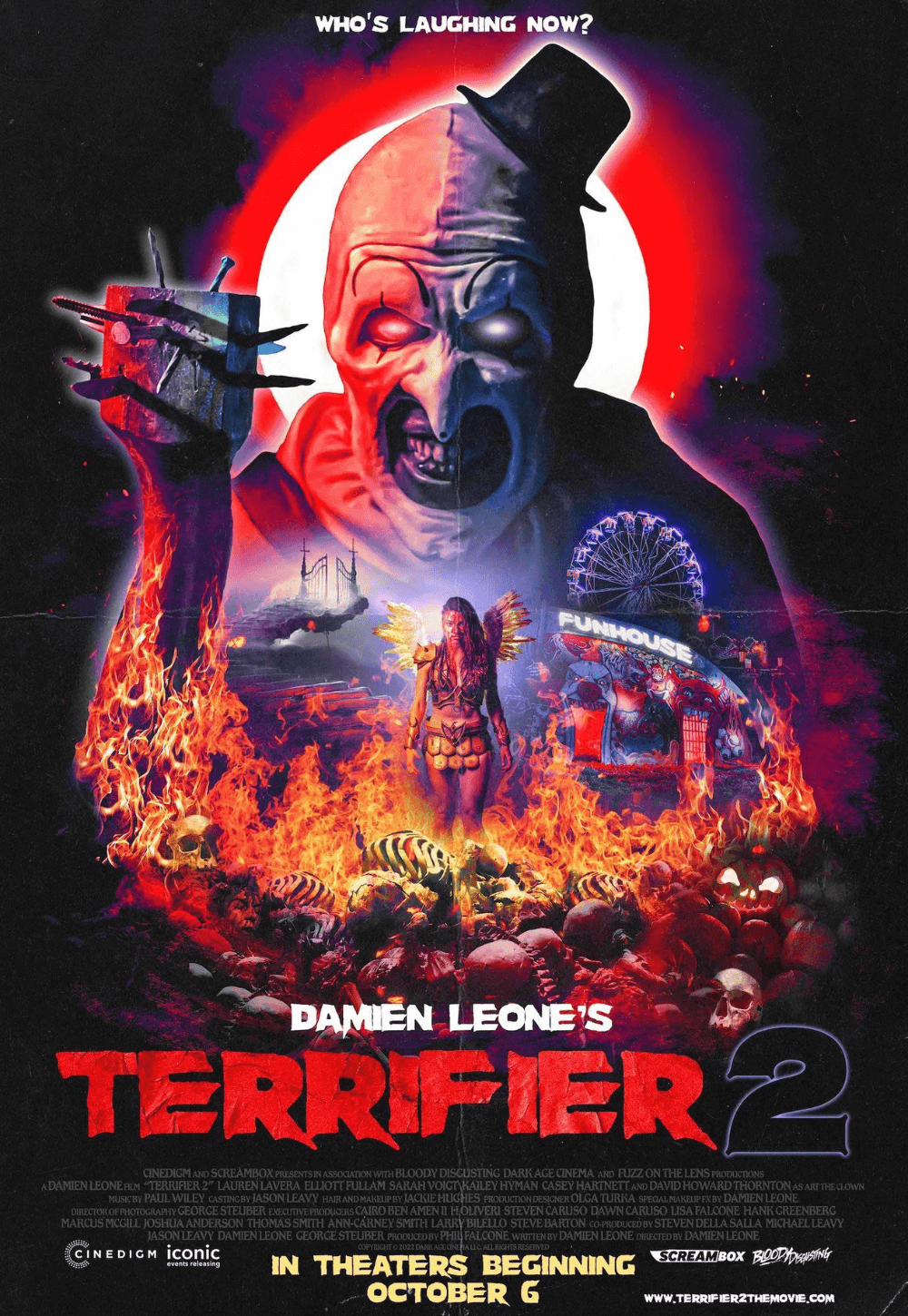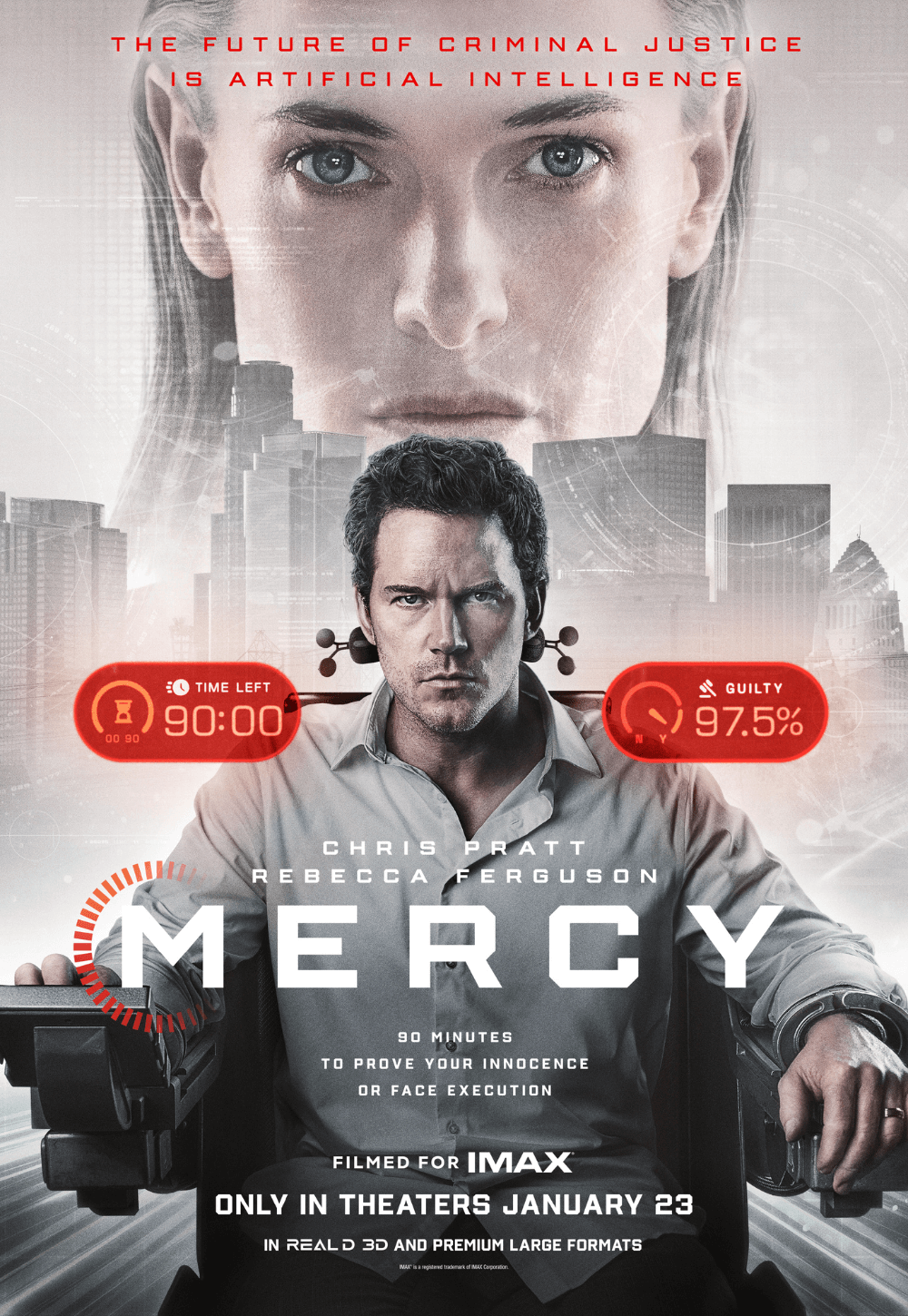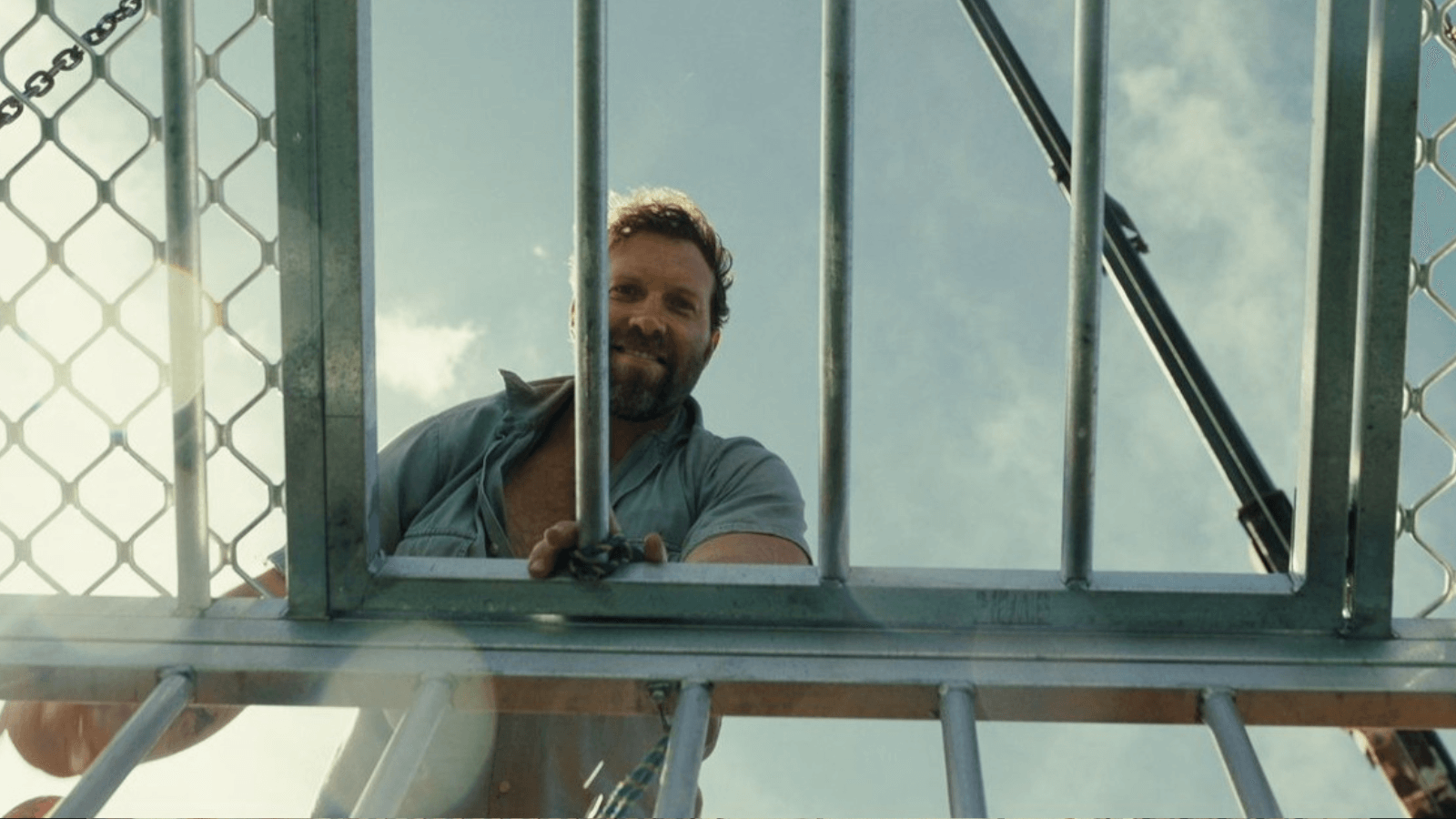
Dangerous Animals
By Brian Eggert |
On the Venn diagram of rabid fan bases, Dangerous Animals targets the overlap between crime junkies and shark fanatics. This is a rare movie designed for people devoted to murder podcasts and serial killer documentaries on Netflix, along with those who fervently watch the Discovery Channel’s Shark Week. While the implications of these fan subsets sometimes prove troublesome—glorifying killers, exploiting victims, stigmatizing sharks—they represent a financially viable demographic. And so, here’s a film that will massage the pleasure centers of both subcultures. Jai Courtney stars as a psycho whose modus operandi involves kidnapping women, feeding them to bloodthirsty sharks, and recording the incident on a VHS camcorder, the tape of which is then added to his library of rewatchable killings. It’s a terrific hook for a movie, recalling Tobe Hooper’s 1976 shocker Eaten Alive, about a psycho motel owner who feeds guests to his pet crocodile. Distributed by IFC Films and Shudder, Dangerous Animals shouldn’t have trouble finding an enthusiastic audience.
However bankable its premise, director Sean Byrne’s film never improves upon its pre-title sequence shown in the trailer: Tucker (Courtney) guides two twentysomethings, Heather (Ella Newton) and Greg (Liam Greinke), into shark-infested waters on his boat for some cage diving. Full of charm and Australian machismo, Tucker jokes about them having their last will and testament in order, only to then calm Heather’s nerves with a rendition of “Baby Shark” that makes everyone smile. After their dive, Tucker abruptly stabs Greg in the throat, dropping him in the water to become mako shark food. Heather’s fate will be much more prolonged and nightmarish. Had it ended there, the experience might’ve been a gripping short film. Instead, the Nick Lepard-penned movie introduces cornball characters and increasingly silly situations that spoil most of the goodwill earned by the concept.
Lepard’s script has two thematic throughlines, both handled with the subtlety of a jackhammer. The most pronounced involves the notion that Tucker and his latest victim lead independent lifestyles—you know, like sharks. Our hero is Zephyr (Hassie Harrison), an American who has escapedher foster system roots to live that nomadic surfer life in Australia, somewhat ironically following the “Us against The System” philosophy of Point Break (1991). When Tucker eventually kidnaps her, Zephyr refuses to give up trying to escape, intriguing her captor with her fighter’s spirit. “You and me,” he tells her, “we’re sharks. Solitary creatures. We fend for ourselves.” This proves true even after Zephyr’s random hookup, Moses (Josh Heuston), tracks her down to rescue her and fares a little better than Dick Hallorann in The Shining (1980). The other major throughline involves several mentions of the Roy Orbison song “Ooby Dooby”—specifically the Creedence Clearwater Revival cover—which is just as random and ridiculous as it sounds.
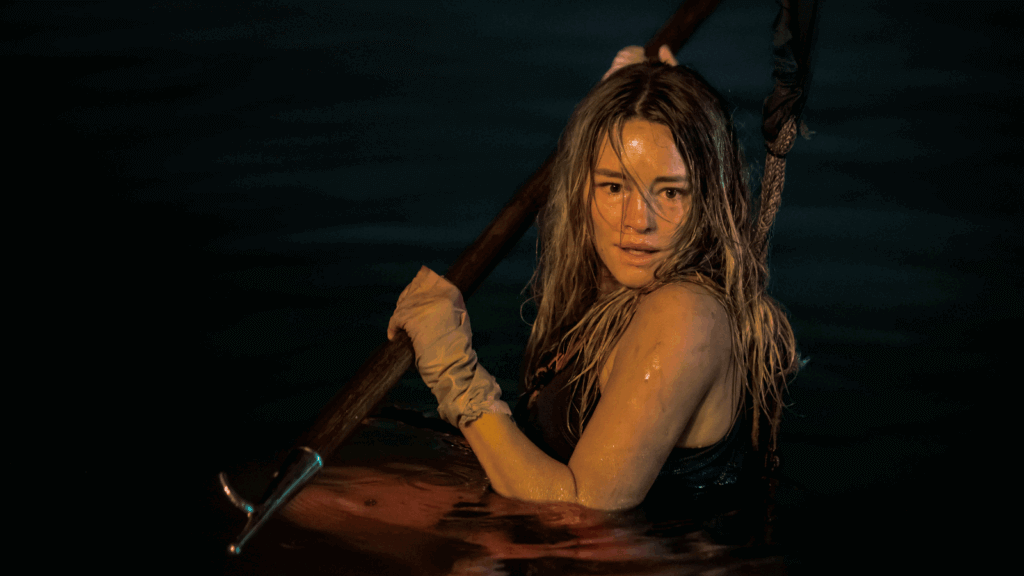
Fortunately, Courtney has never been better. A decade ago, Hollywood cast the Aussie actor in several franchises—A Good Day to Die Hard (2013), the Divergent series, Terminator Genisys (2015), and Suicide Squad (2016), among others—and each resulted in creative and commercial disappointment. Studios have since stopped trying to make him a marquee name. But his sensibilities thrive in B-movie material like Dangerous Animals. Physically imposing, he gives a wild, energetic, menacing performance, demonstrating how miscast he’s been in generic hero roles. Courtney seems at home amid Tucker’s small library of victim tapes (think Mark Duplass in 2014’s Creep) and performing an unhinged dance sequence (think Sebastian Stan’s moves in 2022’s Fresh). Courtney makes a meal out of every scene—particularly when Tucker watches footage of his killings over a meal, or listens to his kidnappees screaming over his morning cereal.
Courtney injects plenty of life into his role, but the script does the cast no favors. Tucker sounds ridiculous waxing philosophical about how sharks create order out of chaos—anyone would. But it’s chilling when he smiles after watching his latest victim’s demise and says, “Tell me that ain’t the greatest show on Earth.” Lepard’s heavy-handed writing leads to some tedious scenes of Zephyr and Heather bonding by sharing stories about their past, recalling the stuck-in-an-elevator episode of every ‘80s television show. And the aforementioned preoccupation with a song leads to what must rank as one of the stupidest, most nonsensical lines ever written: “Ooby dooby, motherfucker!” Harrison, best known for Yellowstone, does what she can with the material; however, Zephyr is a thin character despite her construction as a fighter.
Byrne showed promise with The Devil’s Candy in 2015, a superior and more unnerving look at a twisted murderer. Dangerous Animals has less style and thematic heft than his previous movie, despite debuting in the Directors’ Fortnight section at this year’s Cannes Film Festival. Cinematographer Shelley Farthing-Dawe captures the natural splendor of Australia’s coastline in shimmering waves and crystal blue waters, but the production relies on unconvincing CGI to render its sharks and some underwater scenes. The fish look so-so in most sequences, save for the laughably shoddy climactic image that spoils any goodwill toward what came before. Along with a drum-heavy score by Michael Yezerski that tries to do too much work, the production doesn’t live up to the opening few minutes. Although the movie will likely be embraced by serial killer and shark enthusiasts, Dangerous Animals doesn’t have much to offer besides a memorable baddie and a promising logline.
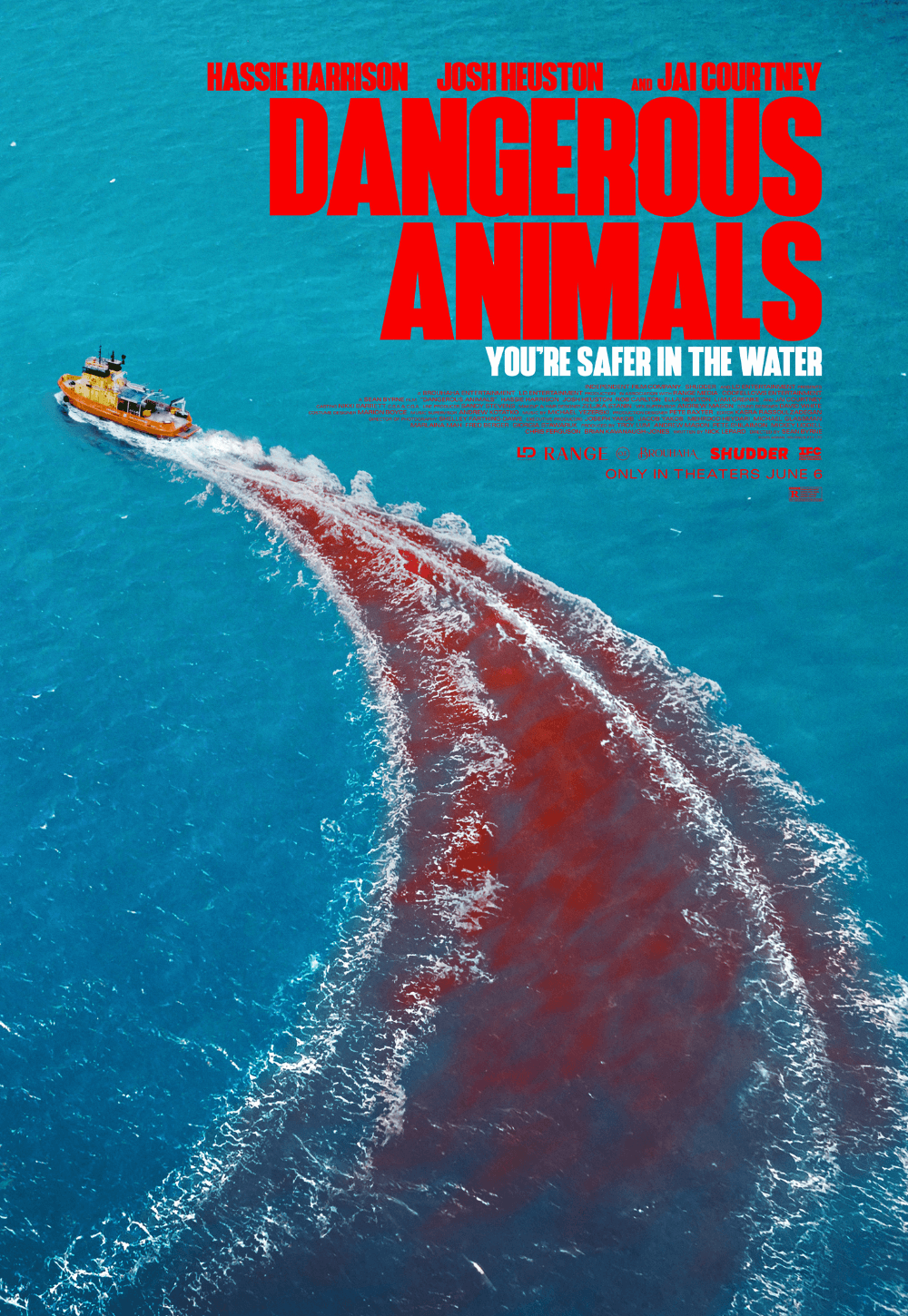
Thank You for Supporting Independent Film Criticism
If the work on DFR has added something meaningful to your love of movies, please consider supporting it.
Here are a few ways to show your support: make a one-time donation, join DFR’s Patreon for access to exclusive writing, or show your support in other ways.
Your contribution helps keep this site running independently. However you choose to support the site, please know that it’s appreciated.
Thank you for reading, and for making this work possible.
Brian Eggert | Critic, Founder
Deep Focus Review


